A conversation with filmmaker Hilan Warshaw
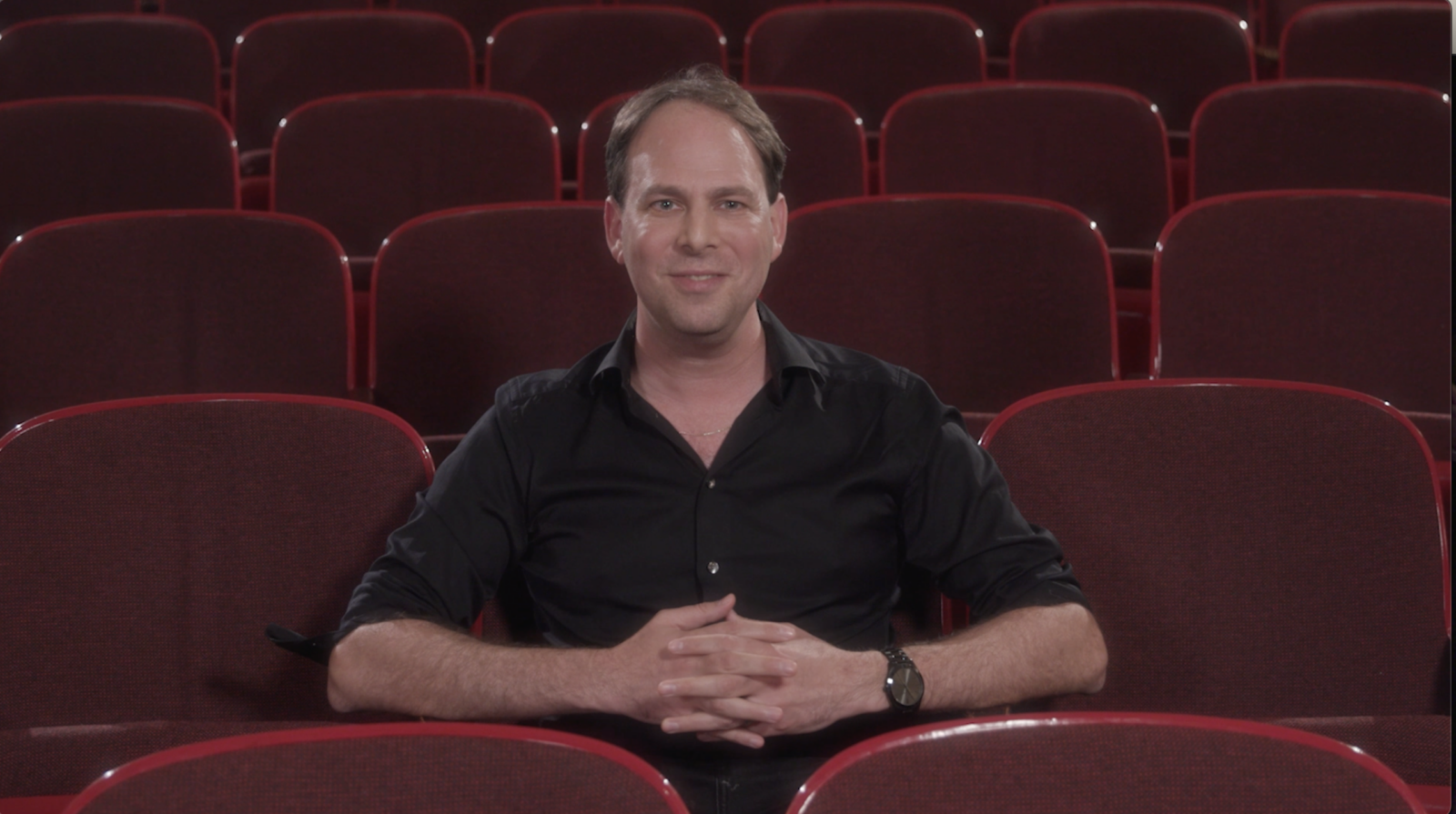
In the lead-up to the ACMP Film Club event about Hilan Warshaw’s “Secret Song” on Sunday, February 18 at 2pm ET, I had the pleasure of catching up with Hilan, and asking him about how his background as a musician led to a unique career as a filmmaker with a primary focus on musical subjects.
Stephanie Griffin: As a longtime friend of your sister, Dalit Warshaw, I know that you grew up in a uniquely erudite and musical New York family. Could you please tell our readers about that background and the formative musical experiences of your youth?
Hilan Warshaw: It was quite a special way to grow up. My sister, who is a wonderful composer (as well as a pianist and thereminist), was very active as a composer while still a child. There were performances of her music by some of the leading orchestras in the country, there were awards and some media attention, and a lot of travel. Starting early on, there were also collaborations in which I would write the narrations for musical-dramatic works for which she wrote the scores; I would often then narrate the works in concert. That was great because, while I was active as a musician– specifically a violinist and, starting in high school, a conductor– my greatest passion from early on was writing and storytelling. I think the most formative aspect of that period was the opportunity to work hands-on with the fusion of story, text, and music. That’s still what I’m doing today as a filmmaker.
Apart from your mother and sister, who were some of your most influential music teachers and mentors?
I had some fantastic and generous conducting teachers. They included Michael Charry at Mannes, Murry Sidlin at Aspen which I attended for conducting as a teenager, Miguel Harth-Bedoya, and Edward Simons, who was the music director of the community orchestra in Rockland County where we lived. Among my violin teachers, the most important was Nicole DiCecco, a beloved figure who taught me both privately and as part of a weekly group music program for young violinists that she founded. Probably the most inspirational musical mentor of all for me was my mother, a pianist and piano teacher, who was was a central force behind a lot of this activity. Trying to speak objectively, I’ve never met a more gifted and intuitive teacher about music and its expressive potential.
Did you participate in any special music programs?
I played in the first violin section of the New York Youth Symphony from ages 12 to 17. That was a hugely important experience in terms of intensifying my love for music– because while I never wanted to be a violin soloist, I found the orchestra completely thrilling– and even, in a sense, starting my turn towards filmmaking. While the orchestra was rehearsing, I would imagine very specific visual scenarios to the pieces that we were playing. Rehearsing each Sunday and then performing this incredible repertoire three times a year in Carnegie Hall impacted me in a way that was unforgettable. When I was 16, I was even very kindly given the opportunity to conduct the orchestra in concert at Carnegie in the overture to Verdi’s La Forza del Destino— which at that age was a level of dopamine high that I’m not sure I’ll achieve too many times in my life! I think that if it hadn’t been for the experience of the orchestra, I might well have tried to make a career as a playwright. But drama plus the emotive and sensory power of music– that in my mind equaled cinema.
In those years I also participated as a violinist in other wonderful musical programs (most of which also included chamber music), among them Mannes Pre-College, Interlochen and the Boston University Tanglewood Instiitute.
Did you ever consider pursuing a career in music?
After high school, I attended Mannes as a conducting major. Stephanie, I think you might actually have attended one of my student conducting appearances there— if I remember correctly, it was followed by a celebration at Café Mozart, of blessed memory!
Of course! Thanks for the reminder – that was quite a night! What made you change course from studying to be a conductor?
I loved conducting very much, and there are times when I still miss it. What became clear to me, though, is that my desire to tell stories and to create new works outran the joy that I might have found in a conducting career. I eventually transferred to New York University’s film program, and haven’t looked back since. When I’m on a set directing actors and the movements of the camera, I feel the same excitement that I felt when I was on the podium.
In general, I feel that film is an orchestra or chamber group with more instruments. If you think about the vertical layout of a chamber music or orchestral score, you could say that in a film you have the staff of dialogue, the staff of sound design, of the image sequence, of color schemes, all happening simultaneously in addition to any actual music that’s on the soundtrack. Many of the principles of rhythm and structure are the same as you have in musical composition— especially as regards film editing. So in a sense I don’t feel that I’ve switched tracks so much as followed the track further, in the way that made most sense for me.
I discovered quite by chance, while organizing filing cabinets at the ACMP office, that you actually worked for ACMP with our original Executive Director Dan Nimetz! How did you hear about ACMP and how did that come about?
That was a lovely freelance job that I took when I was still starting out and supplementing film work with editorial and writing work, often related to music. In the same timeframe, I also worked as a freelance copywriter and proofreader for Carnegie Hall and other places. I was only with ACMP for a few months, but it was great! The work was mostly proofreading the directory, as well as writing a couple of marketing pieces that I believe were used in print materials as well as on the website. There were some very fun afternoons and evenings of work in the ACMP office near Madison Square Park. Dan Nimetz was a delight to work with, as was everyone else at ACMP that I interfaced with at that time.
What circumstances led you to pursue a career as a filmmaker and what steps did you take towards attaining that goal?
Going to film school was an obvious choice once I realized that this was the path I wanted to take. I was fortunate to attend a wonderful film school, NYU, which among other things gave me technical skills that I could use to find work after graduation. I started video editing as a freelancer for a number of organizations; that included editing and co-writing television documentaries for PBS and several European and Asian networks. My goal was always to direct and write my own films, so I started a production company and began to market myself to clients as a producer/director as well as an editor. The most important single step was probably pitching a network that I’d done editing work for on the film that became my first documentary as a director, which they wound up commissioning.
Many ACMP members are already watching “Secret Song” and are looking forward to our ACMP Film Club discussion with you and Eugene Drucker on February 18. Could you please tell us about some of your other films about classical music themes?
I suppose that’s a good segue! My first feature documentary was called Wagner’s Jews, and explored Richard Wagner’s highly complex relationships with young Jewish musicians who were personally and professionally devoted to him. It was the first in what’s become a series of films focusing on composers’ lives and the real-life dramas underlying their work. Secret Song, the film we will be discussing at ACMP, is obviously very much in that vein as well.
My other television films about composers include Through the Darkness about Arnold Schoenberg and his turbulent friendship with the painter Richard Gerstl (which was the personal backdrop to his development of atonality in the Second String Quartet), and In the Key of Bach. Last year I made a musical documentary for PBS in Georgia called My Bolero, with the extraordinary conductor Nathalie Stutzmann— commissioned by the Atlanta Symphony Orchestra, where I’ve worked as video director since 2020. I co-produced another TV film about Rachmaninoff, and there’s a new film about Mahler for Swedish TV on the way. When I’m at the Atlanta Symphony Orchestra, the process of directing nine cameras in the capture of orchestral performances is a total joy for me. I’ve also recently written a feature screenplay on a classical-music theme that I’m discussing with a couple of film companies; fingers crossed that it finds a way to get made soon.
How can our readers access some of these films?
Some of the documentaries are available on Medici TV. They’ve also been on Amazon and iTunes, as well as the networks’ sites. A lot depends on how their distributors choose to feature them.
Lastly, I know you’re in Berlin now working on a new project. Can you tell us a bit about your upcoming film?
My very next film is actually not about a musical subject. It’s called Honorable Mr. Morgenthau and tells the story of Franklin Roosevelt’s only Jewish cabinet member, Henry Morgenthau Jr., and his crisis of conscience in the face of both the Holocaust and what he came to see as a deliberate policy among some in the U.S. government to obstruct plausible attempts to rescue victims of the Nazis. It’s a story about bigotry and deep frictions over immigration, issues that unfortunately are still very timely today. The goal is to tell it an immersive way that somewhat collapses the distance between documentary and narrative– although every word spoken in the film, and nearly every image, is archival. While it’s not about a composer, I’m approaching it in the same way I approach those other films: first and foremost, I’m trying to tell a story with an emotional journey, and hopefully also provoke thought about important questions.
More Articles
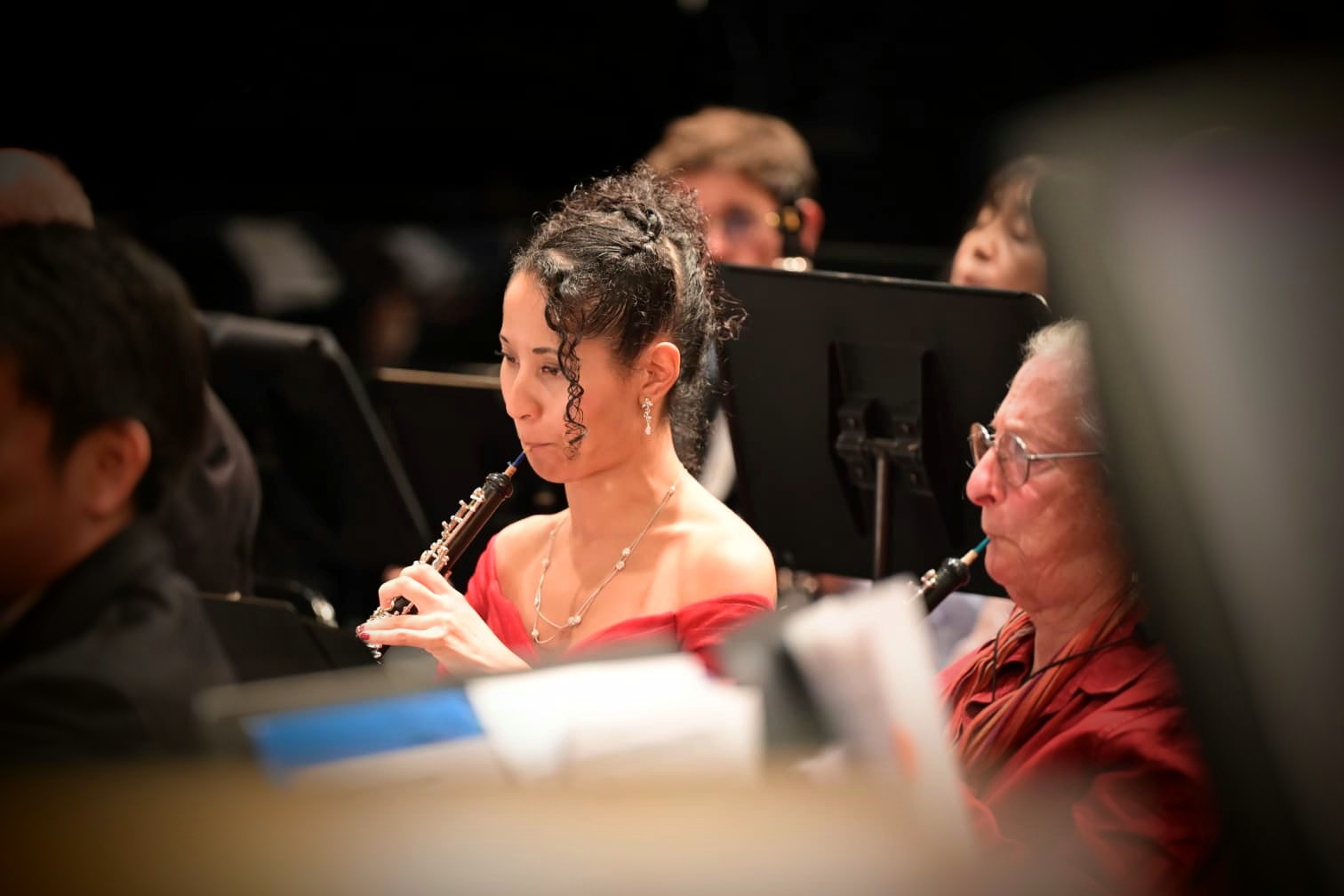
Kayana Jean-Philippe: The serious business of an amateur oboist
When it comes to the oboe, Kayana Jean-Philippe is what you might call a serious amateur – someone who pursues her passion at a high level, but does not make a living at it. One of her most consistent musical outlets has been the United Nations Symphony Orchestra, which she joined 10 years ago and is principal oboist. Another musical outlet is ACMP, which she said has connected her with new people and new musical opportunities.Read More ↗
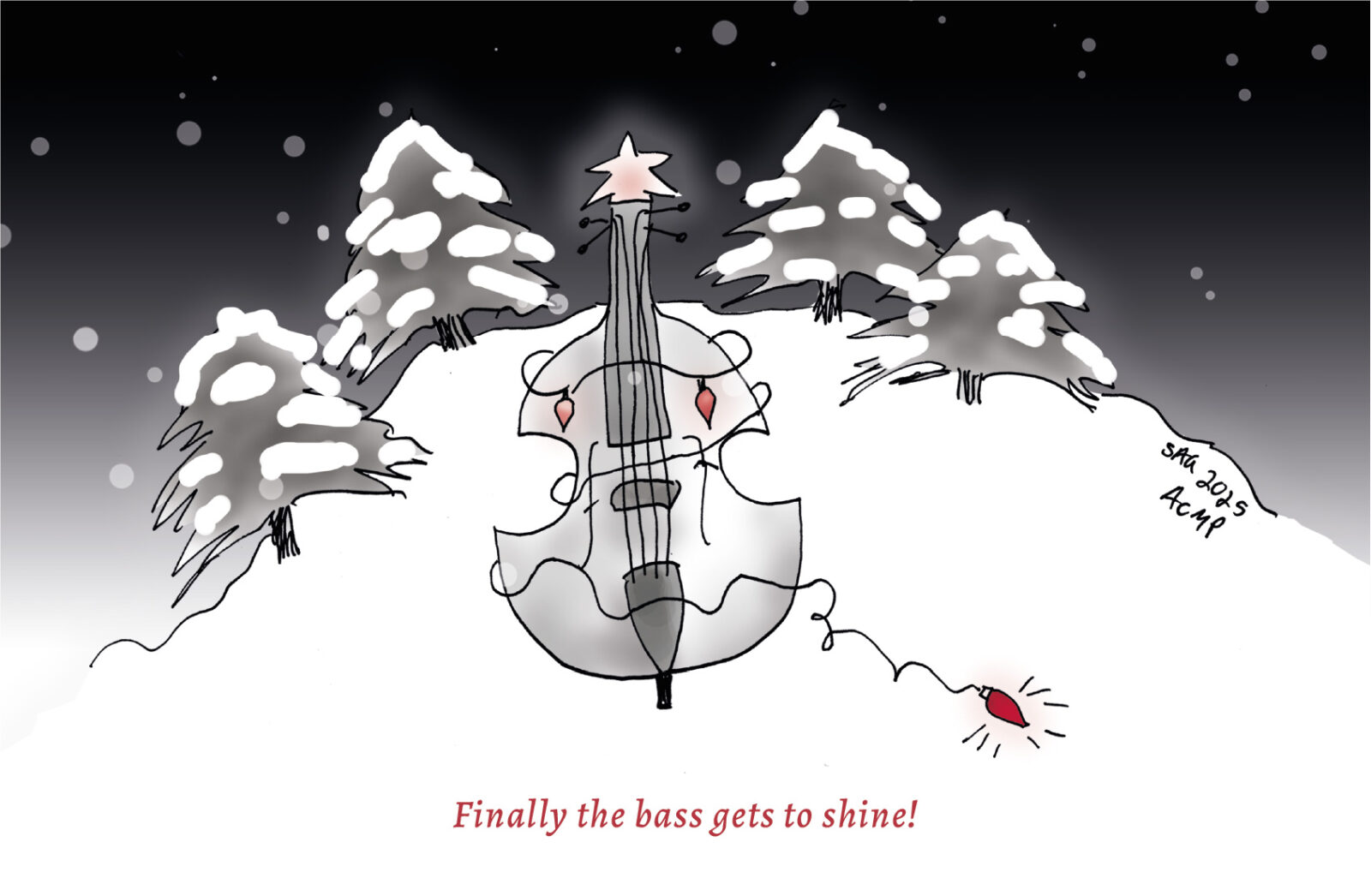
Announcing the 2025 Holiday Caption Contest Winners!
ACMP's 4th annual Holiday Caption Contest was a success, with 69 captions from 41 ACMP members. This year's winners are Valerie Matthews, Peggy Reynolds, and Matthew Greenbaum. Congratulations to everyone who came up with so many wonderful captions for this year's cartoon!Read More ↗
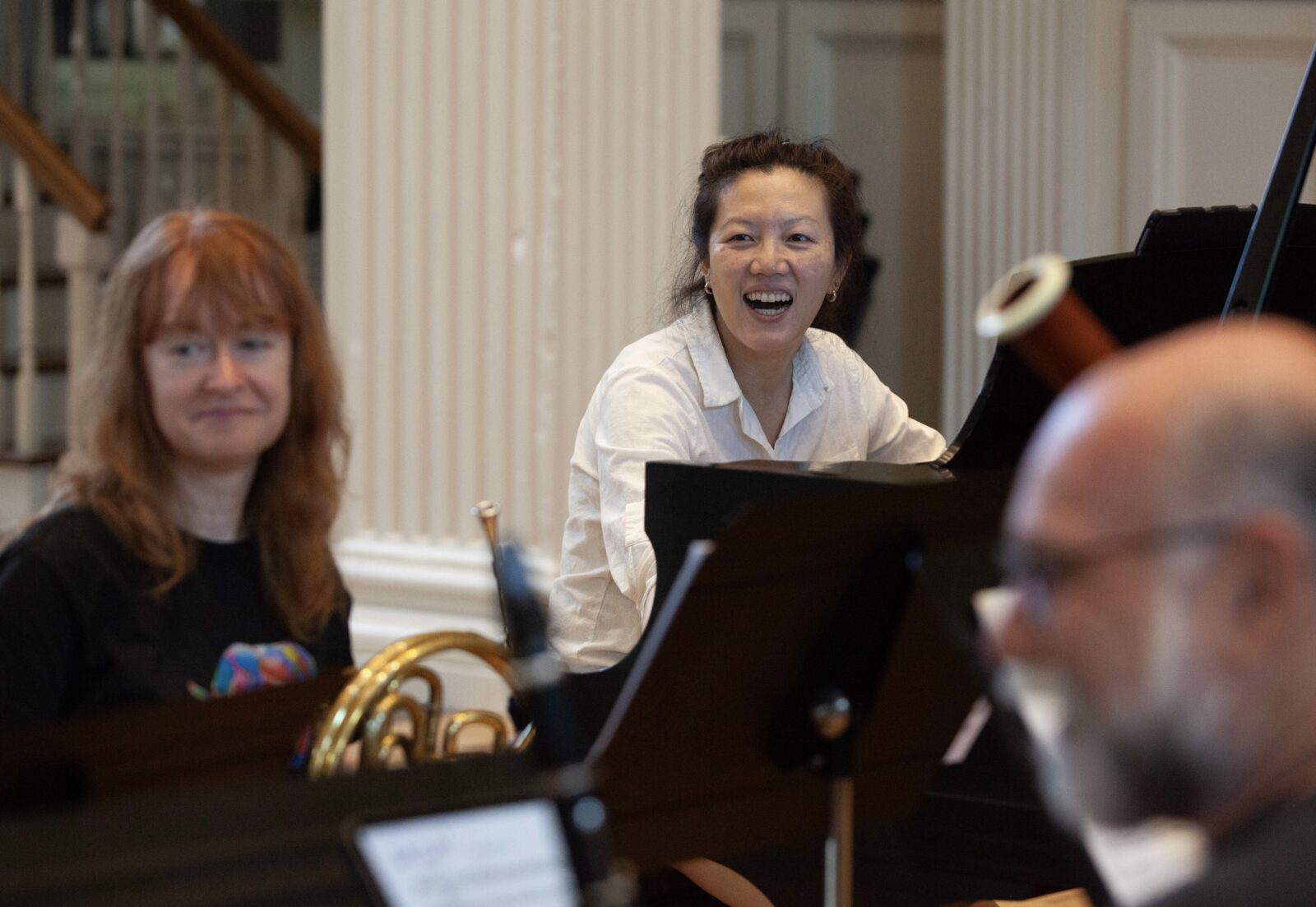
Announcing ACMP’s 2026 Workshop/Community Music Grantees
ACMP is proud to announce its 2026 Chamber Music Workshop and Community Music grantees. This year we awarded $168,000 in grants to 73 chamber music workshops and semester- or year-long programs in 10 countries, and 31 US states. (Photo by Claire Stefani.)Read More ↗

Mystery Donor Reveal: An interview with Louise K. Smith
An anonymous member of ACMP recently spearheaded a fundraising initiative for ACMP in the two week lead-up to Giving Tuesday, offering a $25 gift for each donation received from November 18, 2025 through Giving Tuesday (December 2.) This mystery donor just revealed her identity: Thank you, Louise K. Smith! I asked Louise some questions about her background as a pianist, involvement with ACMP over the years, and about her recent matching grant idea.Read More ↗
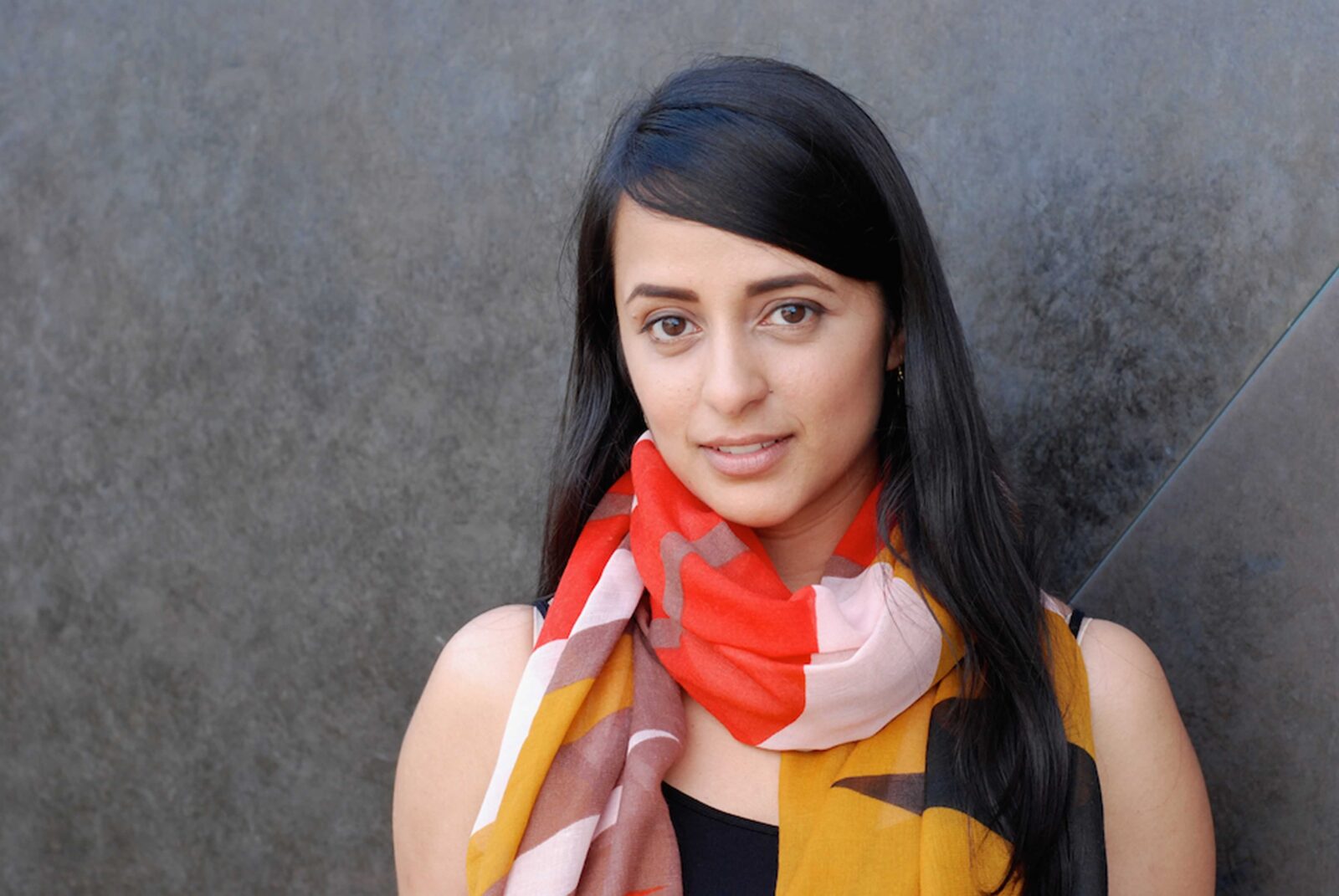
A Bridge from West to East – The Chamber Music of Reena Esmail
After a recent visit to her father's hometown in India, ACMP member pianist Sonya Subbayya Sutton returned to the United States with a renewed curiosity about her Indian culture and music. This led her to explore the music of Indian American composer Reena Esmail. Read about Reena's own voyage of discovery in Indian music and check out links to her scores and recordings.Read More ↗
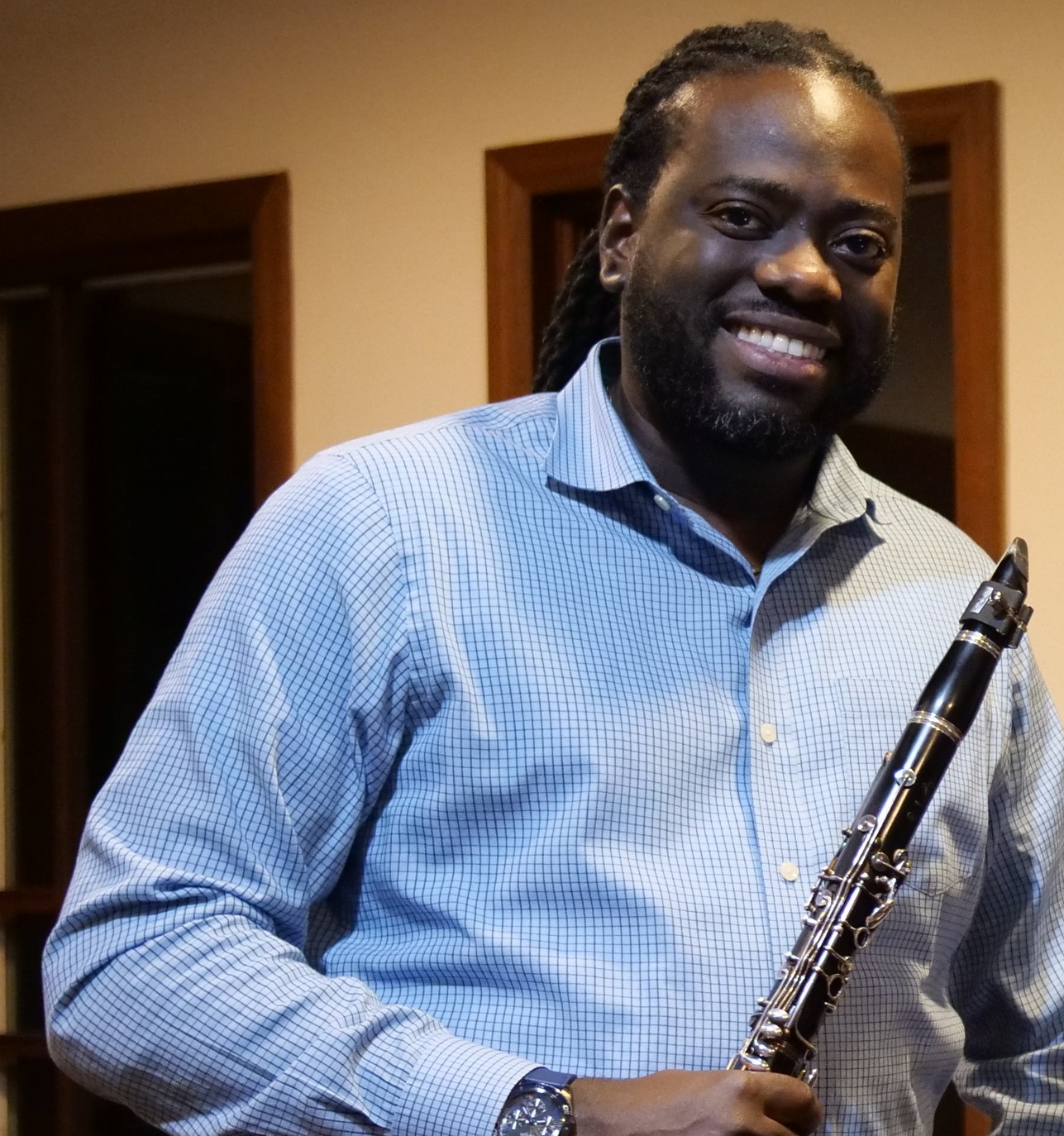
ACMP Member of the Month: Kwame Lewis
Kwame Lewis is not your typical accountant. Born and raised in Trinidad, he emigrated to the United States in 2003 at the age of 23 and set about building his career. Along the way, he lived in the Washington area for an extended period, got married, had two boys who are now 5 and 3 years old, and since 2019 has lived with his family in Melrose, Mass., near Boston. One constant through his journey, though, has been his love of the clarinet and chamber music.Read More ↗
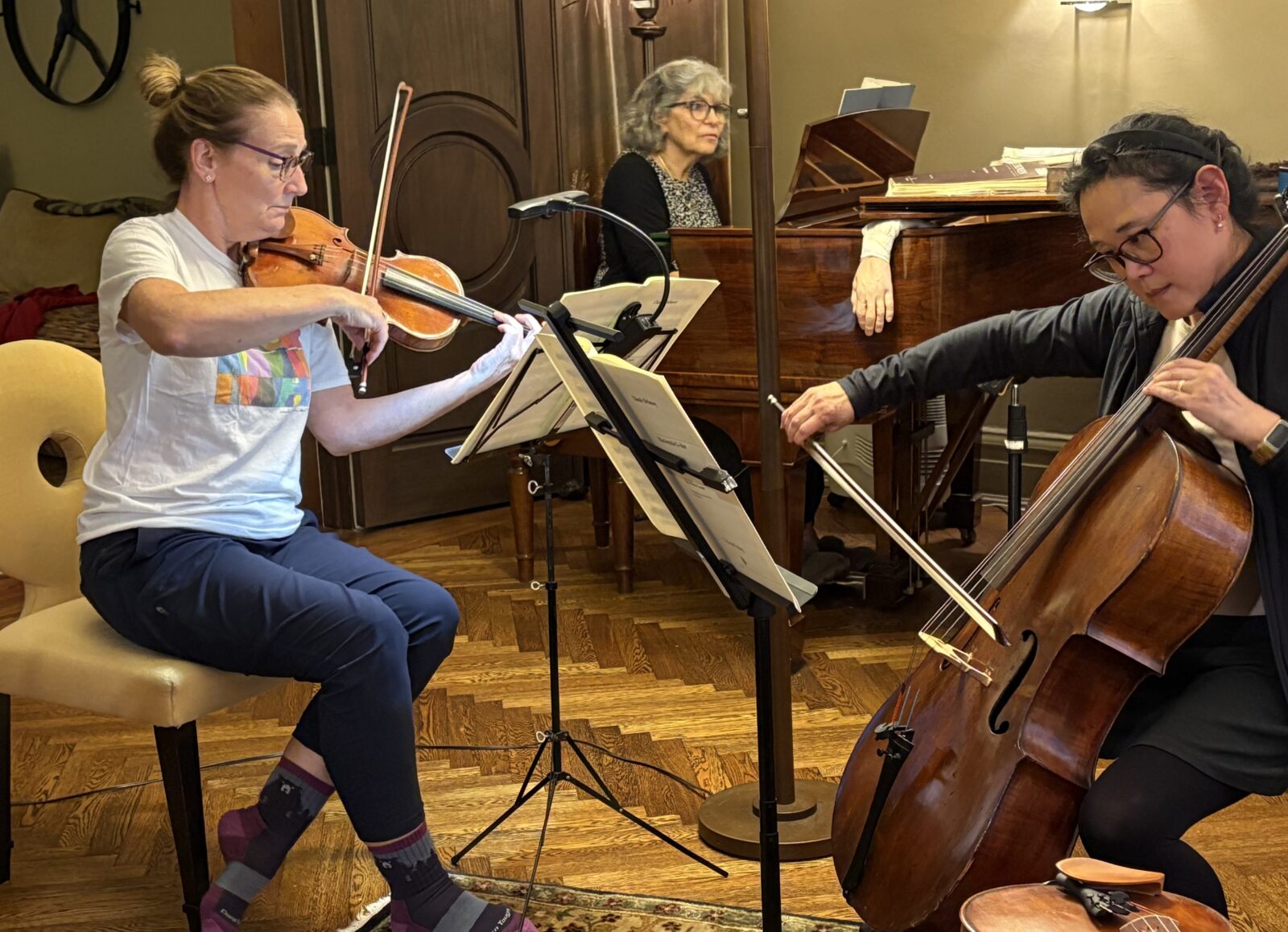
Chamber music for a cause: amateur musicians support Music for Food
ACMP member pianist and violist Arlene Hajinlian is as active a chamber music organizer as she is in sharing her time and space for social causes. This Thanksgiving holiday weekend she came up with a way for adult amateur chamber musicians to have a lot of fun while raising money to support New Yorkers in need: three consecutive chamber music parties as a benefit for Broadway Community through Music for Food.Read More ↗
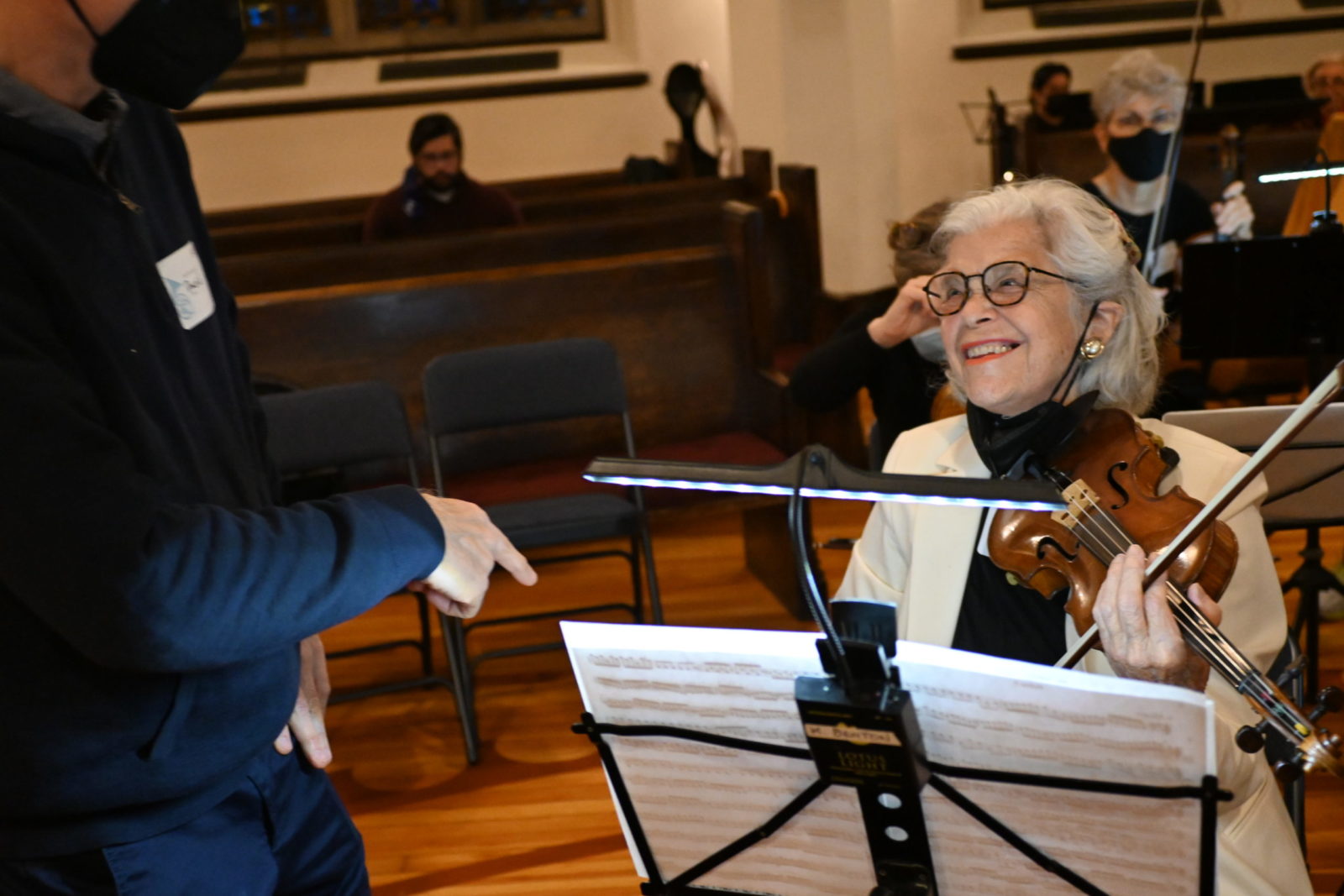
Remembering Kate “Kitty” Bigelow Benton (March 29, 1935 – November 2, 2025)
ACMP mourns the loss of Kitty Benton (1935-2025), a former board member, board secretary and longtime editor of the ACMP newsletter. Read about Kitty's life and watch a video of Kitty telling her favorite stories about ACMP in June 2021.Read More ↗
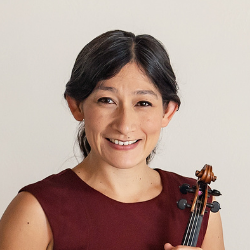
New Video – Meet The Artist: Harumi Rhodes
ACMP Executive Director Stephanie Griffin hosts a lively Zoom conversation with violinist Harumi Rhodes about her musical upbringing and career with the world-renowned Takács Quartet.Read More ↗
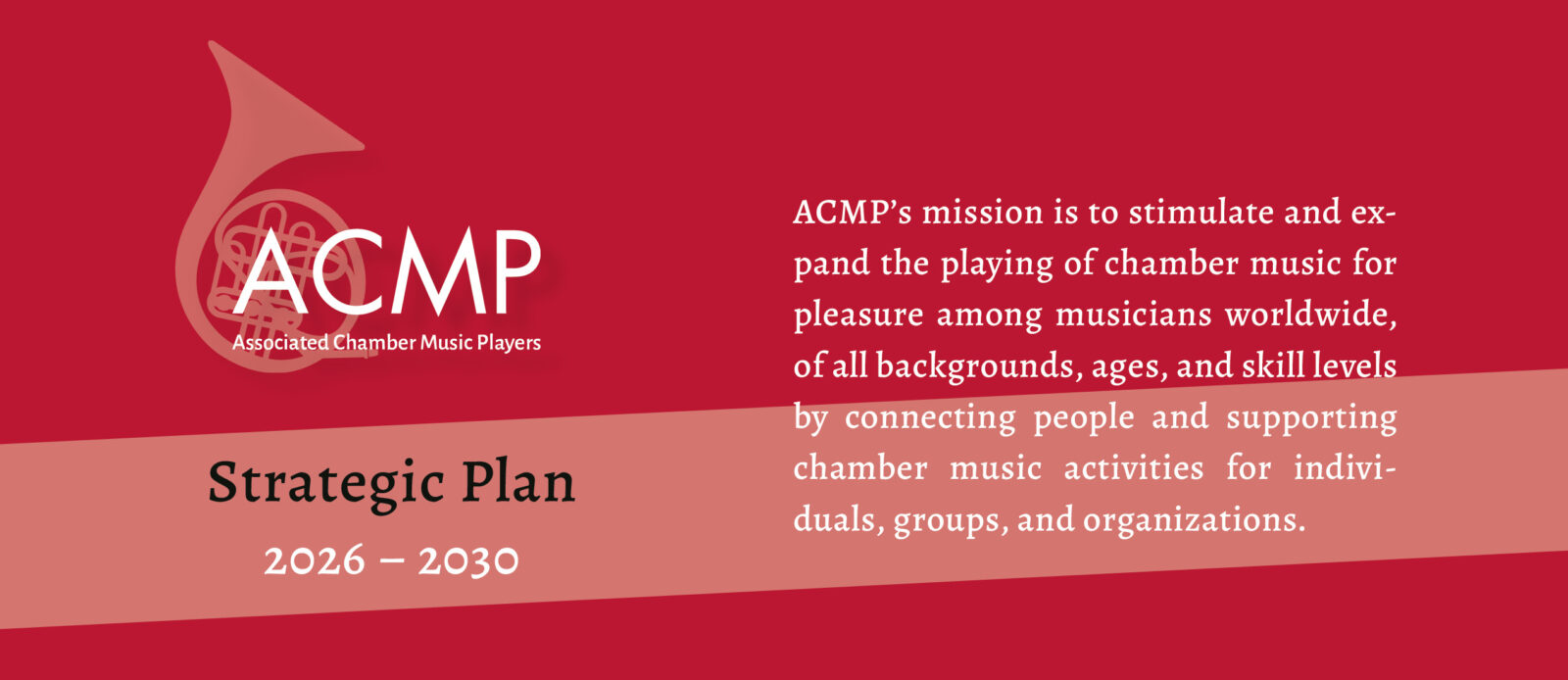
ACMP Strategic Plan for 2030
For the past several years, ACMP’s membership has grown dramatically, as has the popularity of its programs. Building on this momentum, ACMP’s Board and Executive Director completed a strategic plan to chart a course for the organization for the next five years. ACMP’s Board and Executive Director developed a new vision for the organization and a plan to strengthen member services, grants, operations, and finances to advance ACMP’s mission by 2030 and beyond.Read More ↗
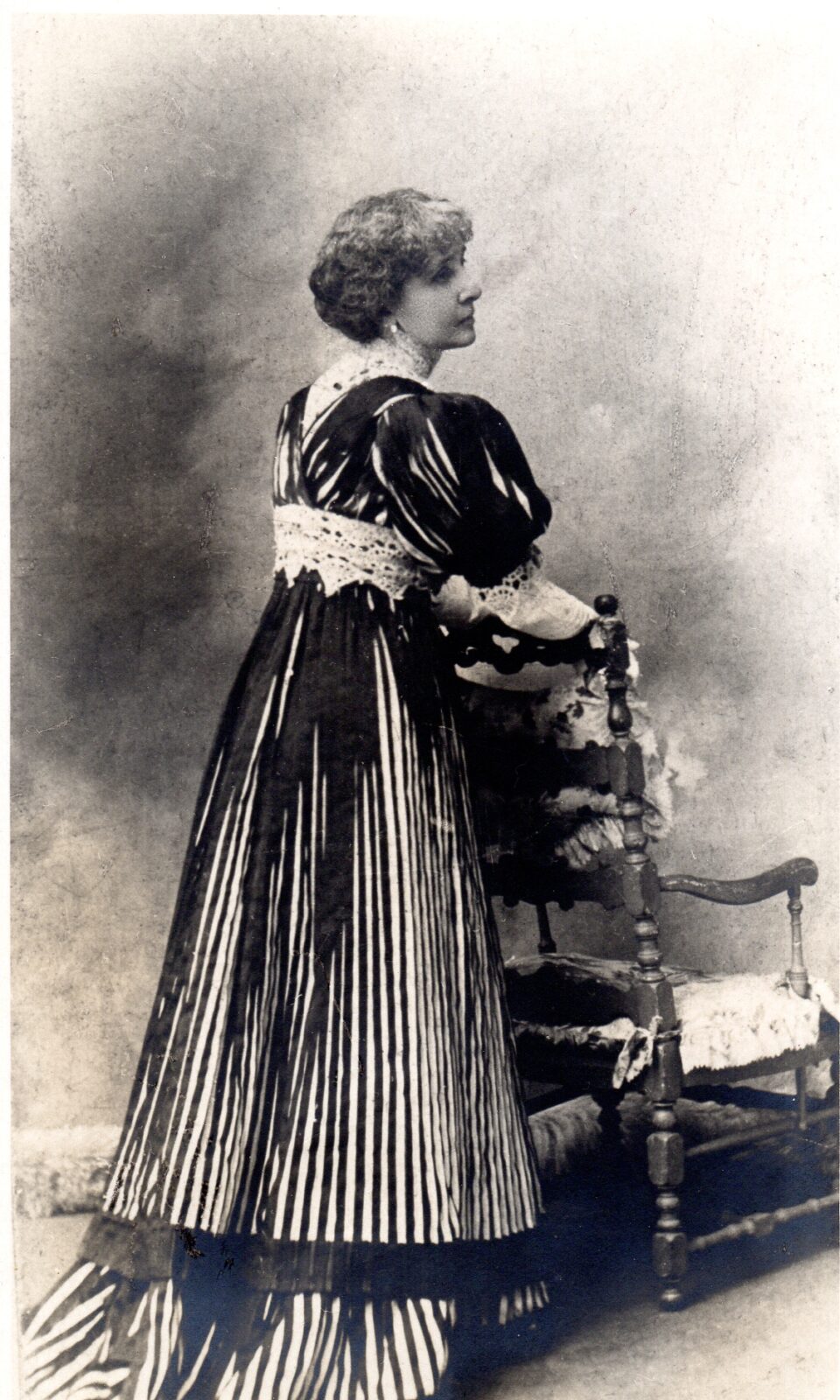
Drab, Inconspicuous, and Quiet No More
Washington, D.C.area pianist and choral conductor Sonya Subbayya Sutton is a passionate advocate of the work of women composers. Read about some of her favorite women composers and discover new chamber repertoire from her list.Read More ↗
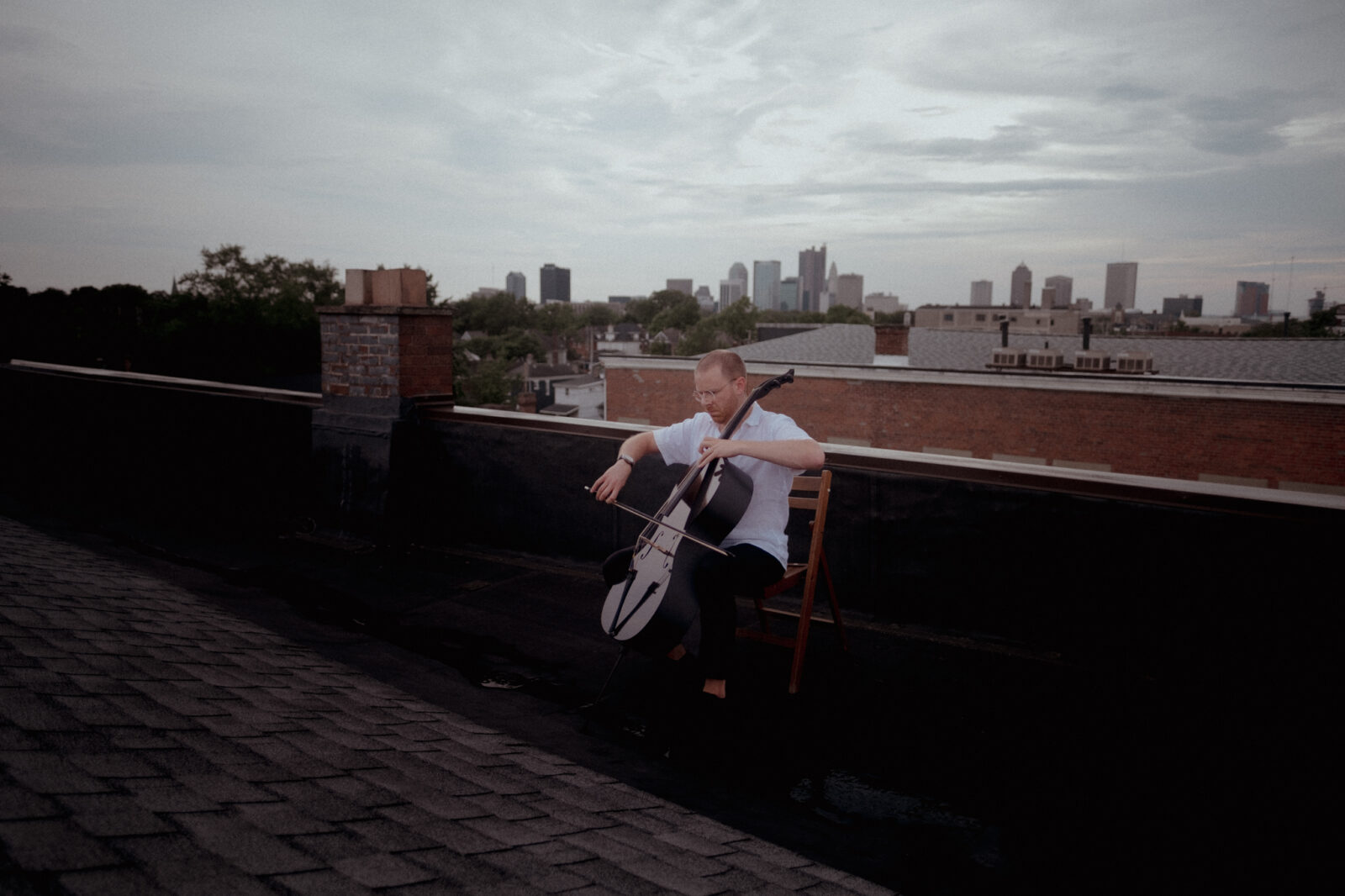
Andrew Brush: An amateur cellist with a global reach
After ACMP’s modest beginnings nearly 80 years ago, ACMP has grown to have a global membership, and perhaps nobody embodies this boundary crossing more than Andrew Brush. With his cello in tow, he splits his time between his home in Columbus, Ohio, and Buenos Aires, with visits to Europe and Istanbul, where his wife is from. Along the way, he has developed diverse musical interests, with influences ranging from Argentina to Mali. We caught up with Andrew recently after he had returned to Columbus, where he serves as a member of the ACMP North American Outreach Council.Read More ↗
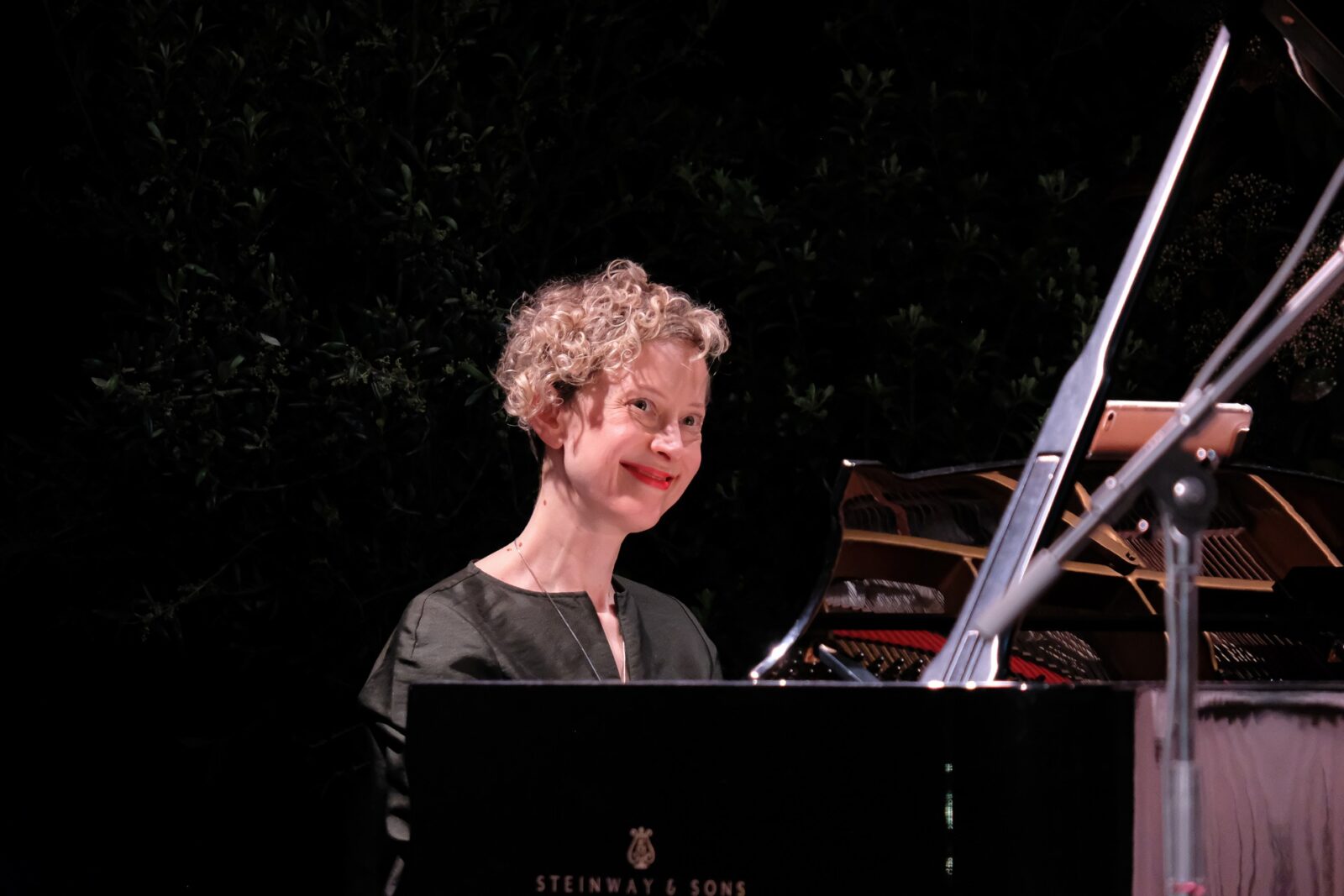
Befriending Performance Anxiety: simple tips for success
Performance anxiety is a universal experience, a survival mechanism that is hard-wired. Many of us react with shaky hands, lack of focus, shallow and fast breathing, rapid heart rate, and even feeling queasy. This is all perfectly natural - our protective sympathetic nervous system comes online to save us from danger, real or imaginary! Join Dr. Xenia Pestova Bennett for a free online webinar about managing performance anxiety on Thursday, October 30th at 6pm UK/Ireland time.Read More ↗
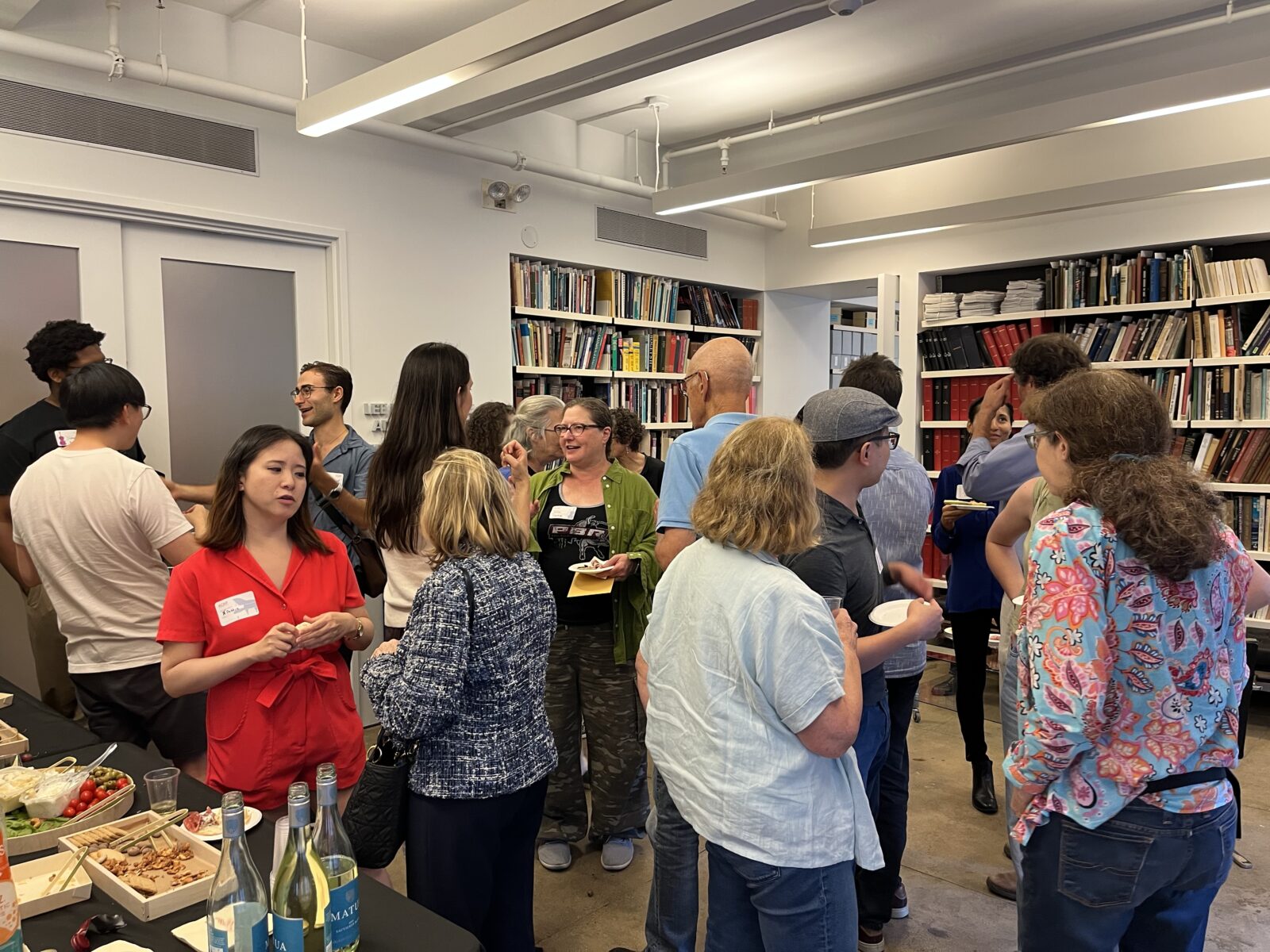
The Great American Play-In: ACMP and ACO
On Saturday, September 13 ACMP embarked on its first collaboration with the American Composers Orchestra (ACO). Together we organized a Play-In focused entirely on music by twentieth and twenty-first century American composers. Over the course of three hours, forty-five musicians discovered sixteen pieces or sets of pieces by a wide range of American composers, spanning from 1896 through 2025.Read More ↗
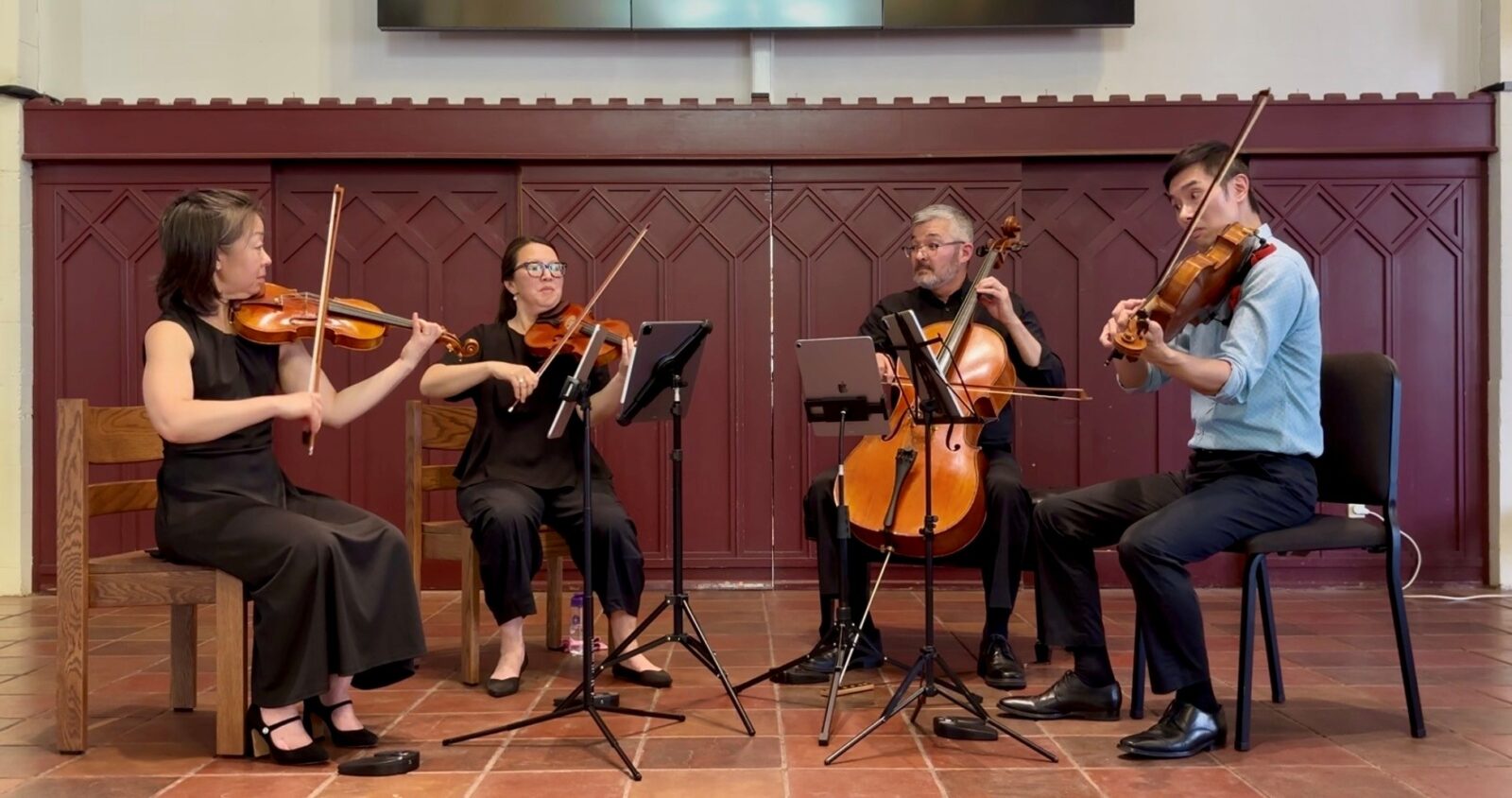
Just Play Concert: Exploring New Voices and Old Masters with the Tarka String Quartet
Thanks to a “Just Play” grant from ACMP, the Tarka String Quartet—Sue Soong and Julie Park on violin, Kevin Jim on viola, and Angus Davol on cello—recently shared a program in San Diego that reflected their passions: exploring new voices by women composers alongside the great works of the quartet tradition.Read More ↗
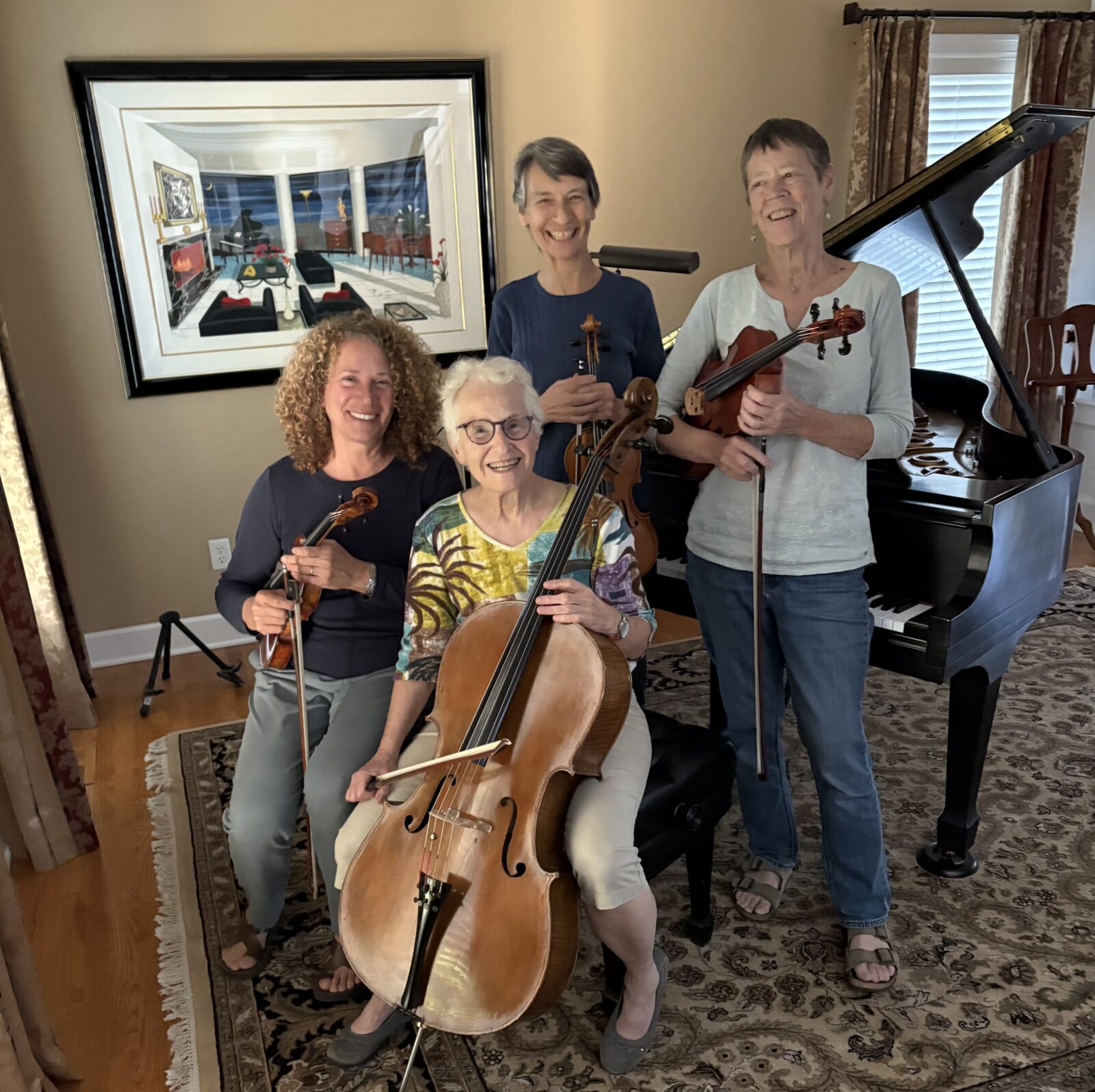
ACMP Members of the Month – October 2025
Playing in a regular string quartet is kind of like having a regular foursome in golf – everyone needs to be of roughly similar ability, and they also need to get along. When those two dynamics come together, the result can be a lasting chamber group that brings enduring friendships. Such is the case with our Members of the Month for October – Ruth Sklarsky, Barbara McIver, Ellen Henry and Kathy Lewis, residents of the Rochester, N.Y., area who have played in a string quartet for more than a decade. They got together and collectively answered a few questions about their musical journey.Read More ↗
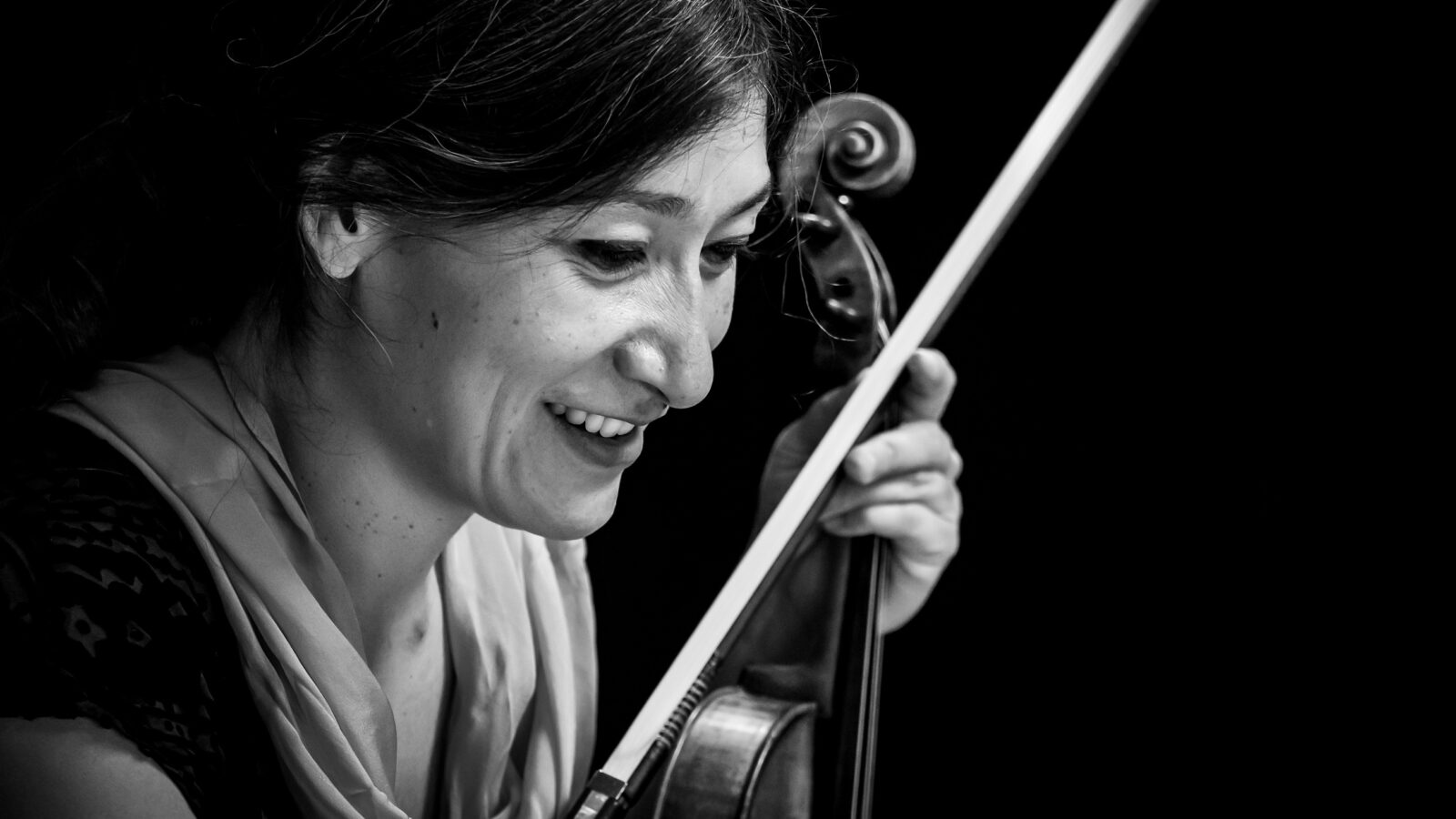
ACMP Event: Meet Harumi Rhodes
Join ACMP’s Executive Director Stephanie Griffin on Saturday, November 1 at 2pm Eastern time for a lively discussion and Q and A with violinist Harumi Rhodes. Harumi is the daughter of two famous chamber musicians: Stephanie’s former viola teacher, Samuel Rhodes (Juilliard Quartet) and violinist Hiroko Yajima (Mannes Trio.) Find out more about Harumi’s early life in that celebrated chamber music milieu, and about her journey as she established her own career as the second violinist of the world-renowned Takács Quartet.Read More ↗
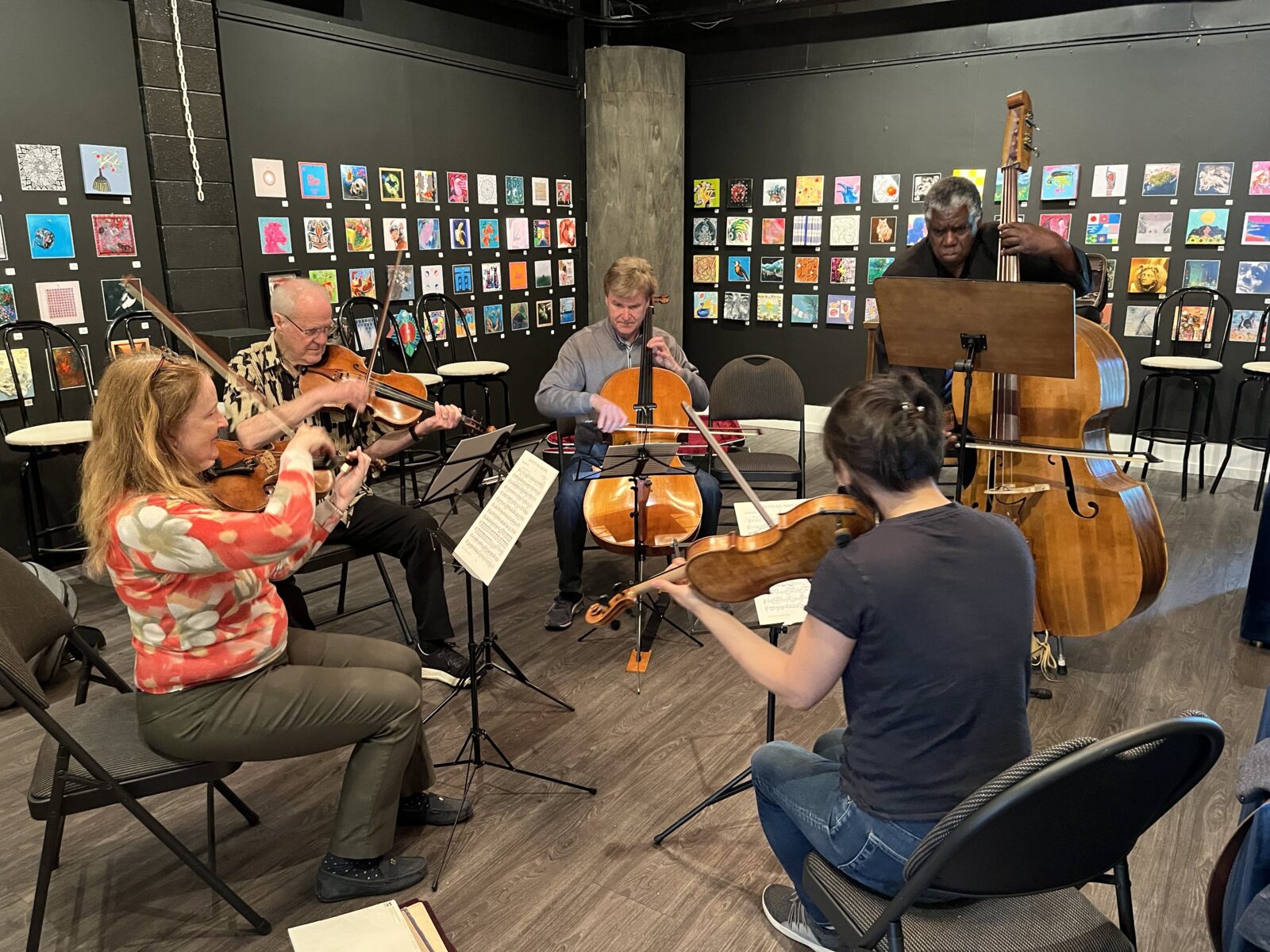
New guidelines for ACMP’s Workshop and Community Music Grant, deadline: October 24, 2025
ACMP's annual Chamber Music Workshop and Community Music grant cycle is open! Deadline: Friday, October 17. Read about the new guidelines and sign up for the Grant Information Session.Read More ↗
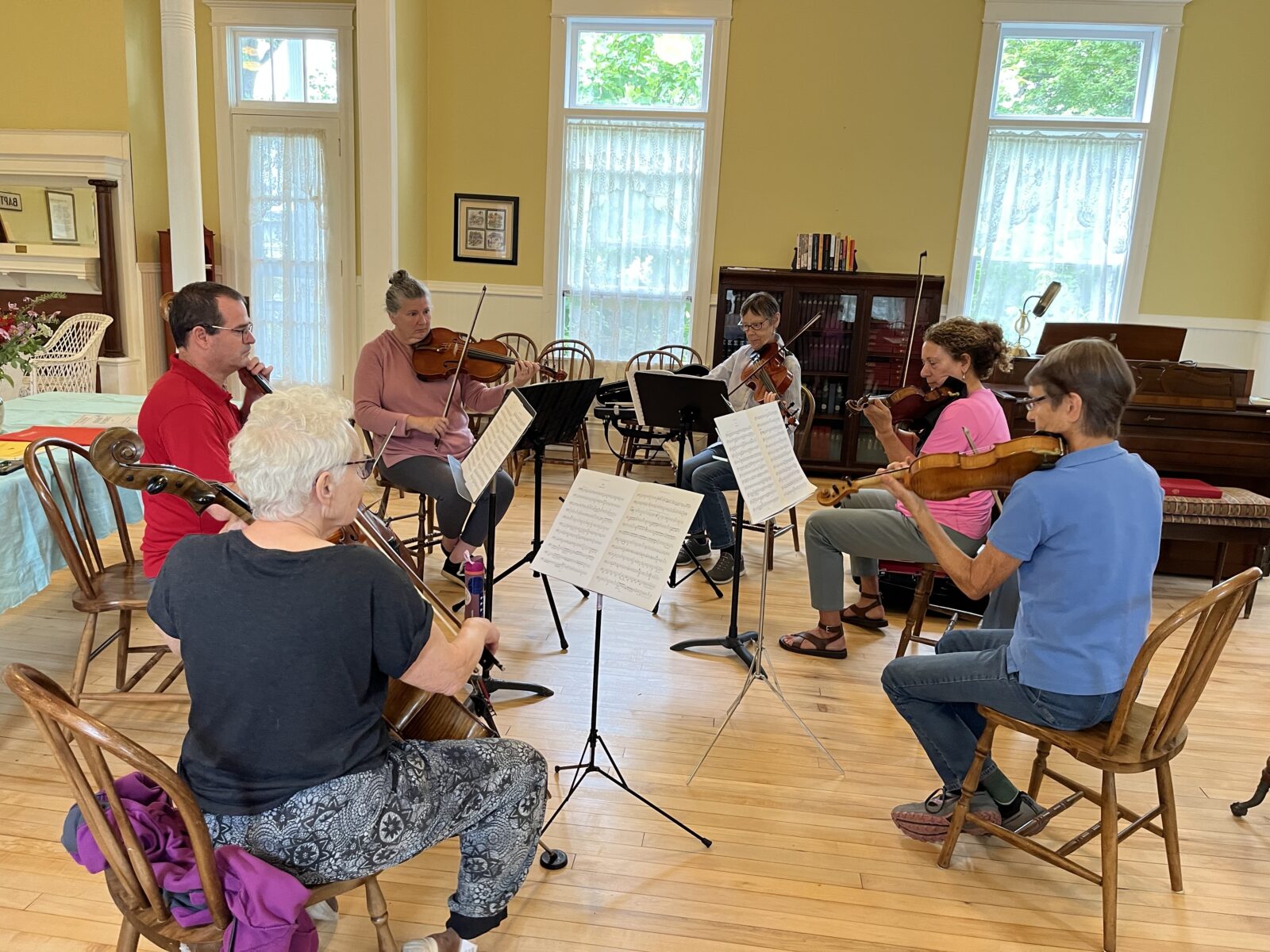
A weekend of music and renewal at Chautauqua
When you first set foot on the grounds of the Chautauqua Institution in southwestern New York, it’s easy to understand the lift in Arlene Hajinlian and Sonya Sutton’s voices when they speak about their summer homes, and why they would welcome a group of ACMP members for a weekend of music-making.Read More ↗
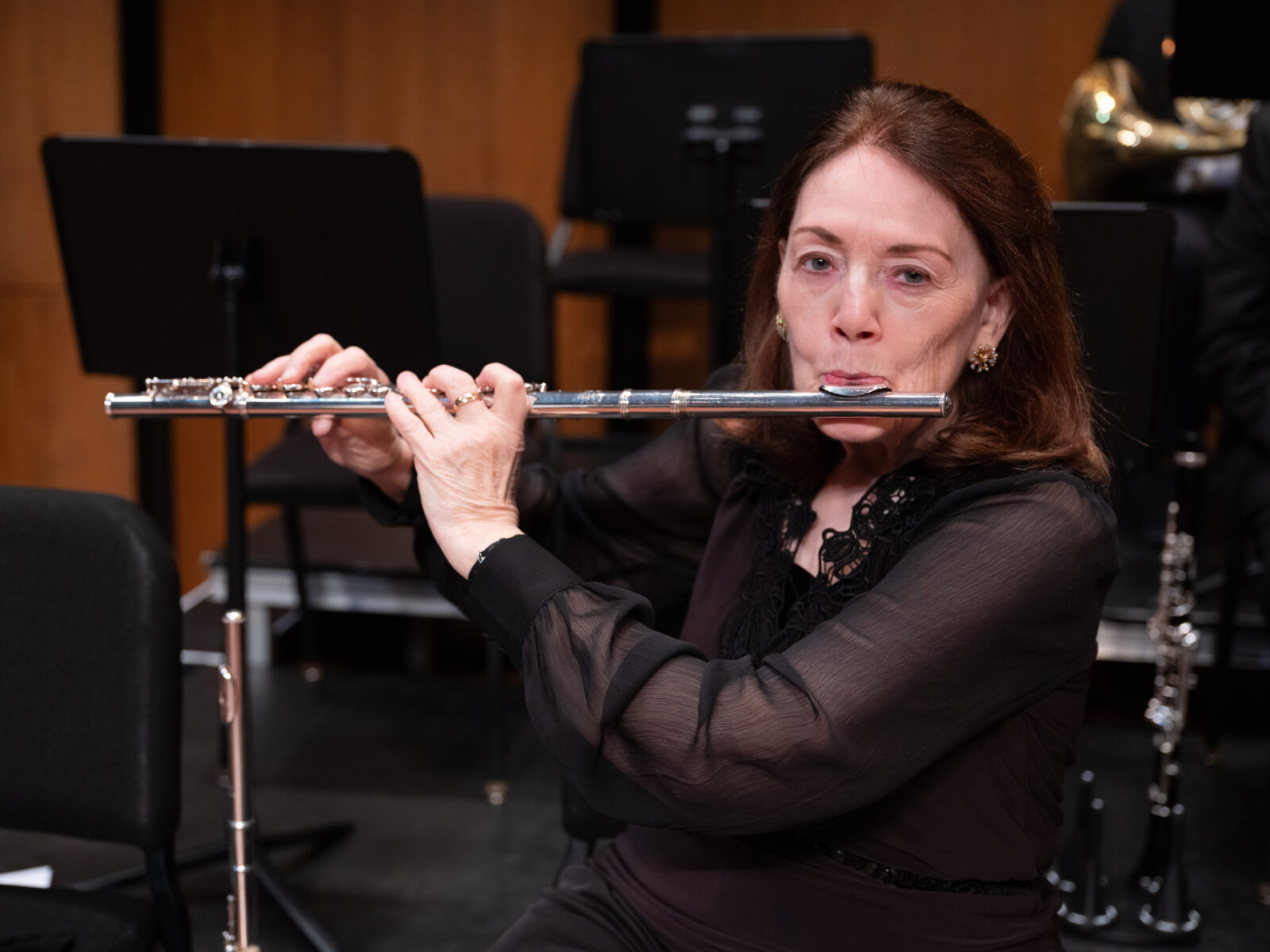
Optometrist by vocation, flutist by avocation
For someone who does not pay the rent as a musician, Pat Brown leads a full musical life with her flute. An optometrist by profession and a dedicated flutist, she has been a member of the Texas Medical Center Orchestra for more than 20 years, serving on the board and helping the group win national awards.Read More ↗